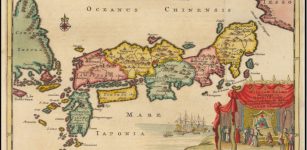On This Day In History: Peasants’ Revolt First Great Popular Uprising In English History – On June 12, 1381
AncientPages.com - On June 12, 1381, the first great popular rebellion in English history began and was known as the Peasants' Revolt or Wat Tyler's Rebellion.
From the 1340s onwards, the catastrophic plague, known as the Black Death, had swept through England, killing between a third and half of the population.
The death of Wat Tyler at the hands of Walworth, Mayor of London, with the young Richard II looking on.. Image credit: Bkwillwm - Public domain
These huge death tolls led to a shortage of people left to work the land.
The remaining peasants began to re-evaluate their worth and demanded higher wages and better working conditions.
Between 1377 and 1381, several taxes were put to finance government spending, and anger among these people was simmering. The so-called Peasants ' Revolt prompted a violent rebellion in June 1381.
The uprising was centered in the southeastern counties and East Anglia, with minor disturbances in other areas.
It began in Essex in May, taking the government of the young king Richard II by surprise. Then, in June, rebels from Essex and Kent marched toward London.
A large group of commoners rode on London, storming the Tower of London and demanding reforms from the young King Richard II.
The rebellion lasted less than a month and failed as a social revolution. King Richard's promises at Mile End and Smithfield were promptly forgotten, and manorial discontent continued to find expression in local riots. Instead, punishments were harsh.
Many important rebels were killed, including their leader Wat Tyler. Richard suppressed the rebellion by promising reforms but failed to keep his word. The death of Tyler and another promise by Richard to give the peasants what they asked for were enough to send them home.
Despite its failure, the incident was probably the defining moment in popular rebellion's history.
AncientPages.com





















